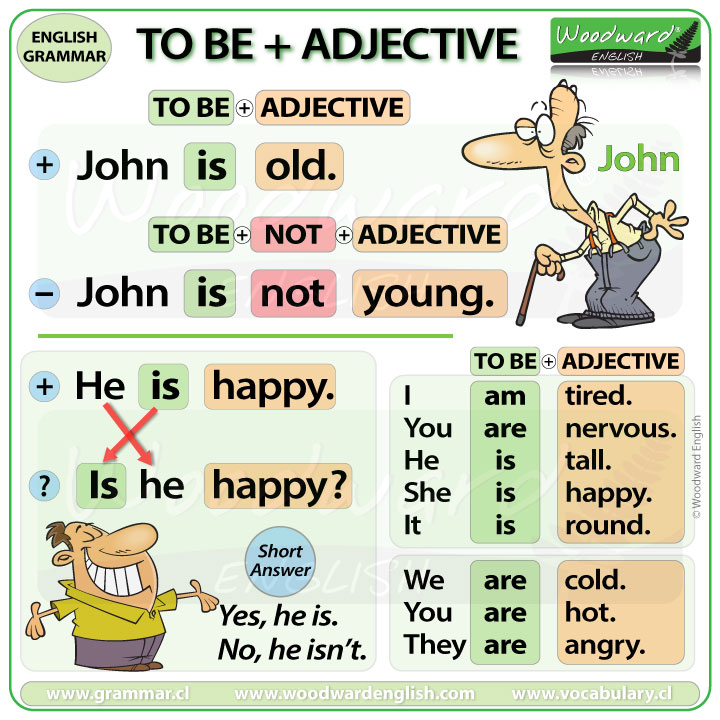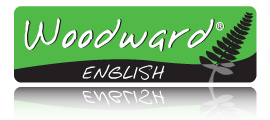An adjective is a word that gives us a description about something or someone.
- John is old.
Old is an adjective. Old is a description of John.
With an adjective, we frequently use TO BE. The order is:
To be + adjective
- John is old.
TO BE + ADJECTIVE
Some examples of To be + adjective:
- I am tired.
- You are nervous.
- He is tall.
- She is happy.
- It is round.
- We are cold.
- You are hot.
- They are angry.
TO BE + NOT + ADJECTIVE
- John is old.
What is the opposite of old?
Young.
To make a negative sentence we use TO BE + NOT + ADJECTIVE
- John is not young.
Our examples from before … now in negative form.
- I am not tired.
- You are not nervous.
Remember you can make a contraction of are not … which becomes aren’t and is not which becomes isn’t
- You are not nervous. OR
- you aren’t nervous.
The rest of the examples:
- He is not tall.
- She is not happy.
- It is not round.
- We are not cold
- You are not hot.
- They are not angry.
So, the negative sentence is: TO BE + NOT + ADJECTIVE.
Let’s look at negative sentences using opposites.
- I am not sad. I am happy.
- Flowers aren’t ugly. They are beautiful.
- Ice cream isn’t hot. It is cold.
- Lemons aren’t sweet. They are sour.
- This exercise isn’t difficult. It is easy.
- A piano isn’t light. It is heavy.
- Elephants aren’t small. They are big.
- My shoes aren’t clean. They are dirty.
QUESTIONS – TO BE + ADJECTIVE
We can also make questions with To Be and an adjective.
- He is happy. (This is an affirmative sentence)
To make a question we change the order of To Be…
Instead of he is… it becomes Is he….?
- Is he happy?
And then you can give a short answer:
Yes, he is. OR No, he isn’t.
Another example:
- She is nervous.
To make this a question, it becomes…
- Is she nervous?
And then you can give a short answer:
Yes, she is. OR No, she isn’t.
Another example:
- They are confused.
To make this a question, it becomes…
- Are they confused?
And then you can give a short answer:
Yes, they are. OR No, they aren’t.
PRACTICE EXERCISES
Exercise 1
Complete these sentences using: is, isn’t, are, or aren’t.
(The answers appear in our video.)
- 1. The Earth _____ round.
- 2. Diamonds _____ cheap.
- 3. Pillows _____ soft.
- 4. A balloon _____ heavy.
- 5. Turtles _____ slow.
- 6. Chocolate _____ sweet.
- 7. A rose _____ ugly.
- 8. Bananas _____ blue.
Exercise 2
Now write the opposite of each sentence. Use TO BE + Adjective.
For example: 1. The Earth is round. The Earth isn’t square.
Exercise 3
Describe your city…
- Is your city large or small?
- Is your city old or modern?
- Is your city clean or dirty?
- Is your city dangerous or safe?
- Is your city boring or interesting?
- Tell us more about your city.
To Be + Adjective – Summary Chart

Next activity
Try our English Quiz about To Be + Adjective.
